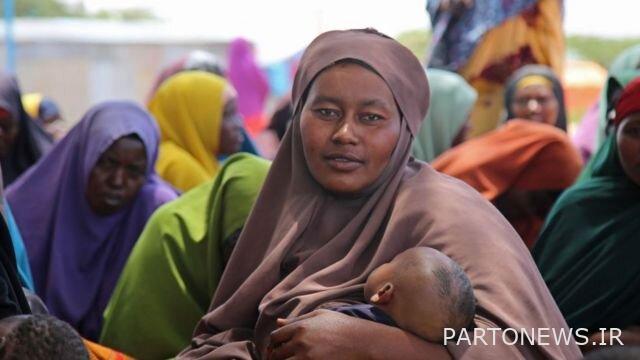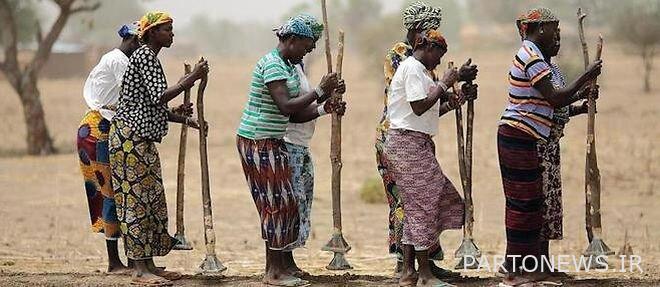Women entrepreneurs are conquering Africa

According to IRNA, according to studies, the situation of women in different countries and regions of Africa is different; Rwanda is the only country in the world where women have held more than half of the parliamentary seats since January 2019 (51.9%). But Morocco has only one female minister in the cabinet.
Significant efforts have been made to promote gender equality on the continent through the creation of the African Charter on Human and Peoples’ Rights, which urges member states to end discrimination and violence against women. With the exception of Morocco and Burundi, all African countries have ratified the Charter. Despite the steps taken towards equality, women in Africa still face a variety of issues related to gender inequality, including disproportionate levels of poverty and education, women’s health and malnutrition, lack of political power, limited labor force participation, domestic violence, child marriage and … are facing.
The African-French website Ideas4development wrote in an analysis that African women who had previously been either marginalized or had a very traditional level of housekeeping were not discouraged, and some of them were successful. To impose their leadership on the development of business and business ideas.
“The African continent, which has long been vulnerable to gender equality and career advancement for women, is today inspired by the spirit of creativity and leadership of women, who make up more than half of the continent’s population,” said Sandrine Naguertiga, a communications consultant. Have benefited. Currently, women entrepreneurship initiatives in Africa are much larger than in other parts of the world, and these can be found especially at the top of the pyramid of agricultural structures, handicrafts and traders in the markets. The fact is that the level of an African woman can no longer be reduced to just selling products in the market.

The Massogbè Touré Diabaté is one of the most prominent examples of women entrepreneurs advertising ivory on the Ivory Coast. She is a senior executive at the helm of the International Aviation Corporation, which has established itself in the industrialized world and faces the challenges of industrialization and women’s economic empowerment.
Magatte Wade is another successful African-American woman entrepreneur in the West who, as a true trader, promotes African natural products in the food and cosmetics industries, mainly in the US market. The 45-year-old now manages two companies and has helped develop the continent.
The strong personality that African women entrepreneurs display helps them cope with the challenges and problems they face every day. At the same time, African women need to manage the family institution in the best way possible, and these are all essential characteristics for becoming an entrepreneur.
Makhtar Diop, the World Bank’s Vice President for South Africa, told the Africa-France Forum in Paris in December 2016 that women’s entrepreneurial capacity in Africa was significant and that they were key players in production. He stressed that these determined, ambitious and resourceful people continue to gain legitimacy in their communities, despite the gender discrimination and inequalities they face every day.

The roots of women entrepreneurs in Africa go back to women and mothers who sell their food in market stalls, especially in the French-speaking region of Africa. Over time, a generation of women entrepreneurs has achieved success in areas such as architecture, civil engineering, new technologies in information and technology, communications, aviation, geology or science, which are traditionally reserved for men.
In this area, ithdith Brou is one of the examples that has been able to show itself in the digital world, despite being very masculine. “Africa is the continent of tomorrow, and digital technology has opened big doors to accelerate its evolution,” he said. As a digital entrepreneur, I look forward to taking advantage of the opportunities available to other Africans.
According to this expert, one of the main barriers for women entrepreneurs in Africa is access to finance. In Africa, many women still do not have bank accounts for personal savings, and bank rates for loans are higher for them than for men.
Women in Africa also have more access to information and seem to be the real cause of inequality. However, for the development of new technologies and the emergence of this new generation of women entrepreneurs in Africa, many support, education and support programs are emerging.

Negritiga says that if African women used to be entrepreneurs out of necessity, but today they are more willing to do so; An action that encourages funding agencies to support programs to invest in projects led by African women.
A new style of entrepreneurship is currently being developed on the Black Continent, incorporating a combination of indigenous traditions and the realities of the economic and social world; Because the continent has special characteristics, it is now focused on a large population of young people who are moving towards modernity while being highly dependent on indigenous cultures.
Agriculture is one of the main sources of employment in Africa; 80% of Africa’s food is produced by women. While they have only 15% of agricultural land. One of the innovative solutions for women is vertical farming. In this method, 95% less water is consumed than traditional agriculture and unfavorable weather conditions do not affect agricultural products.
The World Bank estimates that the value of agricultural trade in sub-Saharan Africa will reach $ 1,000 billion by 2030.
More than a quarter of women in the region are currently entrepreneurs, the highest rate in the world. But these women can not develop their jobs because they receive less budget than men. This is a budget deficit of US $ 20 billion.
.
